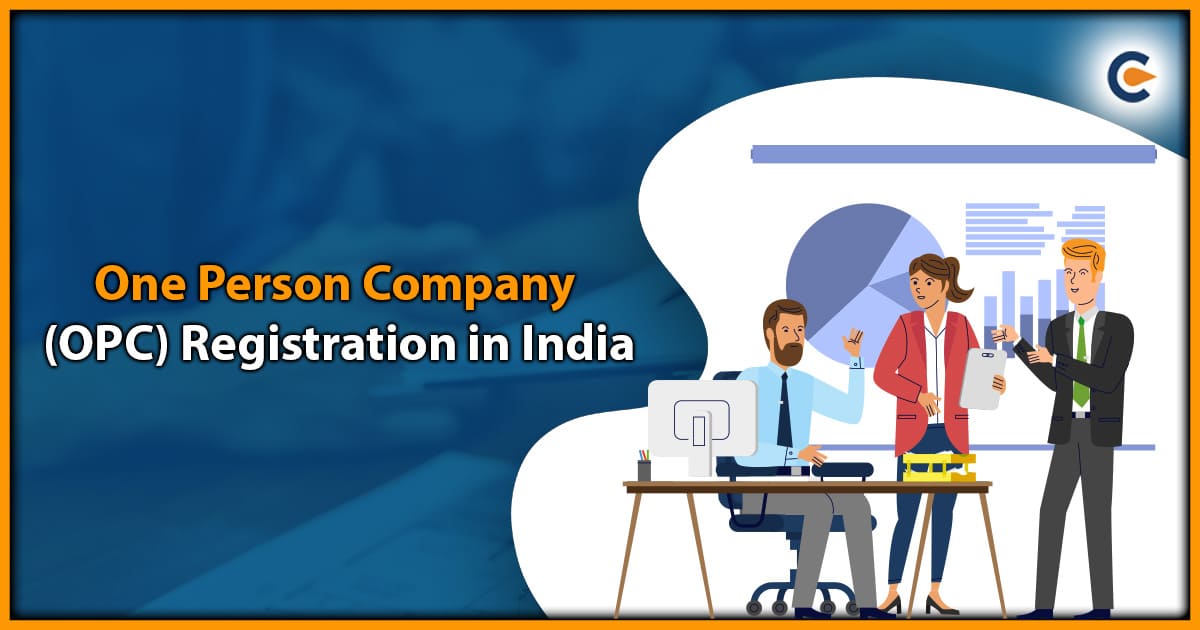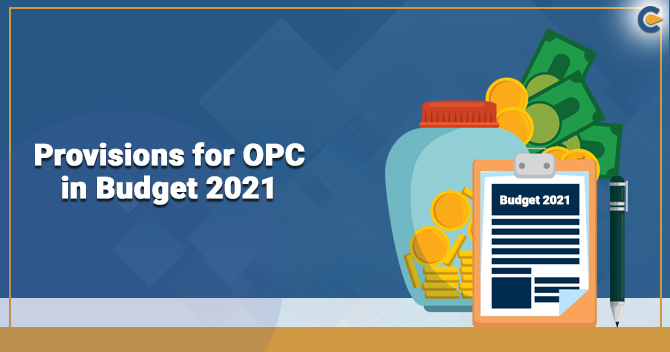As per the companies Act 2013, OPC can have same person as a director and the member, he is solely responsible for the investment, management, control, incorporation, fulfilling all compliances even post incorporation compliances. OPC can attract investors from the outside and can get loan from banks and other lenders, as they are reliable and transparent just like Pvt. Ltd. and Public ltd. companies. However, one person can become a member of only one OPC at a time, and can have only one shareholder and one member which is he himself, law permits them to have maximum 15 directors. In this article, we are going to discuss the restrictions of One Person Company.
What is a One Person Company?
Before we start discussing the restrictions of One Person Company, let’s know the meaning of One Person Company. A One Person company is the greatest alternative for someone who wants to establish a small business but does not have a partner with whom to do so. However, this person must have the resources, expertise, and time to launch the firm successfully.
The Companies Act of 2013[1] governs and incorporates one-person businesses, and the owner is responsible for adhering to all of the regulations and requirements outlined in the Act.
For a better understanding, consider the elements of a one-person company listed below:
- Time, Cost, And Effort: As the single owner and member of the firm, it will undoubtedly take a lot of the owner’s time to thoroughly investigate every business matter; otherwise, the company may even incur losses.
- Limited Liability: Liability is limited by shares in a one-person business. When a business is limited by shares, it implies that the owner will only be responsible for paying the amount of debt that he invested at the time of the firm’s incorporation to his creditors and lenders. He won’t need to sell any of his possessions to pay back the debt.
- Legal Status: The Corporation is known by its own name and not by the names of its owners; it is a separate legal entity from them.
- Membership: The owner is the sole member who is responsible for running the business.
- Taxation: OPC is taxed as a business and not as the identity of the owner. OPC will be required to pay a base tax of 30%, as set by the government, in addition to the remainder of the surcharges, such as the 15% dividend distribution tax and the 18% minimum alternate tax
- Ownership: As implied by the name, it is owned and run only by one individual.
- Perpetuality: To be perpetual is to continue to exist even after death of the owner. Therefore, if anything went wrong and the only proprietor passed away, the one-person company would continue its operation. The status of the owner’s demise has no bearing on the business. It will continue indefinitely and with eternal succession. If the owner does, the firm will be taken over by the owner’s nominee.
- Directors: OPC now has a single director, however the Companies Act of 2013 allows for a maximum of 15 directors.
- Reliability: The fact that OPC is formed under the 2013 Companies Act and must comply with tax and audit regulations makes it far more trustworthy because it is more visible to the general public.
- Board Meetings: An individual business must have meetings in accordance with the 2013 Companies Act; otherwise, it is exempt.
- Audit: Company must produce financial accounts and have an audit performed in accordance with the Companies Act of 2013, which mandates that OPC conduct audits for taxation purposes and other reasons.
Restrictions of One Person Company
Following are some restrictions of One Person Company:
- Only One Shareholder: As the name suggests one person company is managed by one member alone and so the shareholder is also only one. This is a restriction applied by the companies act 2013, that OPC can only have 1 shareholder. The person should be a natural person and resident of India. A person who has been living in India since last 180 days from the preceding year is considered to be the resident of India. So, a person who intends to e a member of OPC must be a resident of India.
- Nominee Shareholder: At the death of the shareholder, the business is passed on to its nominee, and that is how OPC have perpetual existence. Every shareholder of the one person company needs to name his nominee, who at the time of his death shall inherit the company. The nominee must have all those eligibilities which is required for becoming the shareholder of OPC. i.e., he must be a natural person, resident in India and must not be a minor.
- Limited Investment: It is not quite simple for OPC to have a pool of investors. OPC struggles in term of investment if the only member is not sufficient enough to fulfil the expenses. As there can only be one member in an OPC, they obviously can not make public offers or have any other shareholder, which clearly limits the availability of capital for OPC.
- Capital Threshold: There is a capital threshold for OPC. As they are one member company and so the capital invested is usually low only, so the law has fixed the maximum limit of capital for OPC which is Rs.50,00,000 (Rupees fifty lakhs).
- Conversion of OPC into Pvt. Ltd. Co.: OPCs have a limit set for capital investment, which is fixed at RS. 50, 00,000 or if the company’s average annual turnover of the past three years is Rs. 2 crores. So, any OPC who exceeds the threshold limit of capital or turnover any of them, will have to be compulsorily converted into Private Company or a public co. , for which the company shall inform RoC by filling form INC-5
- No. of OPC: A person can not be a member of more than one OPC. i.e., only one OPC for one person shall be present at a time. However, if circumstances may such happen that a person who is already a member of one OPC, was a nominee of another OPC and now has become the member of both the OPC, shall rescind his membership at either of the OPC.
- Director Qualification: The director must be a natural person and a resident of India, which requires that the director must be residing in India from last 180 days in the preceding 1 year. The director shall not be a minor, i.e., he must have attained the age of 18 years.
- Restricted Activities: Non-Banking Financial Investment activities including investment in securities of any other body corporate. Under the terms of Section 8 of the Act (Charitable Object), a One Person Corporation (OPC) cannot be established or changed into a section 8 company.
- Section 193(2): In accordance with section 193(2), the firm must notify the Registrar within fifteen days of the date the Board of Directors approved any contract that it has entered into and that was noted in the minutes of its Board of Directors meeting.
Conclusion
One Person Company come up with a bundle of advantages and disadvantages, and this is not just the case for OPC but for all types of Companies. OPC has many restrictions as well such as eligibility requirement of directors that one member shall not have more than one OPC at a time, the threshold limit of capital etc. but despite of these many restrictions of One Person Company, the advantages are overpowering and convincing.
Also Read:
Benefits Of OPC (One Person Company)
How One Can Start One-Person Company In India?
Know All The Documents Required For OPC Registration











